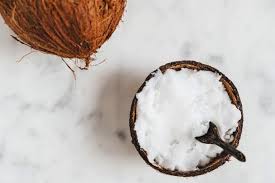Source: asumetech.com
We know that not all diets are the same, especially when it comes to skin care. Diets high in processed and sugary foods have been shown to ravage our skin while other diets promise a radiantly smooth skin microbiome (mediterranean diet, anyone?).
And now there is new research that sheds light on how we can really feed on better skin. A new study, published in the Journal of Investigative Dermatology, analyzed one of the most popular diets and their impact on skin health: the popular ketogenic diet.
We know that healthy fats are essential for a healthy skin microbiome, but this study suggests that even the types of healthy fats we put into our bodies can affect our skin. In this animal study, researchers analyzed different variations in fat-rich keto diet (after all, not every person follows every diet plan to a T). What they found was that certain fats influenced skin inflammatory conditions.
Ketogenic diets rich in medium-chain triglycerides (MCTs) such as coconut cause psoriasis-induced inflammation, especially when these fats are combined with omega-3 fatty acids. On the other hand, the researchers found that keto dietation balanced with long-chain triglycerides (LCT) such as olive oil, soybean oil, fish, nuts and avocado does not cause this dermatitis.
More simply, if you follow a dietary diet and are prone to psoriasis-like symptoms, you should try to protect the coconut.
However, it has been shown that MCTs have significant health benefits (increasing energy, lowering cholesterol and treating epilepsy, just to name a few). So we,#39;re not saying that you should never consume these fats. In fact, coconut oil when applied topically to inflamed skin has been shown to actually alleviate psoriasis symptoms.
Although much more research is needed to establish a clear correlation, this study only emphasizes that beauty really does come from the inside out, and it all starts with a well-balanced diet.
